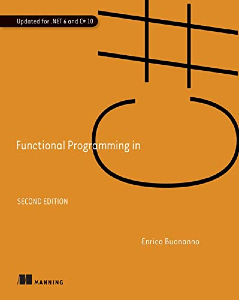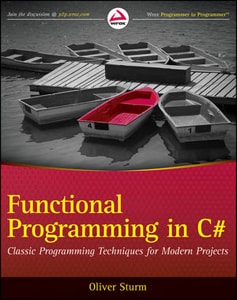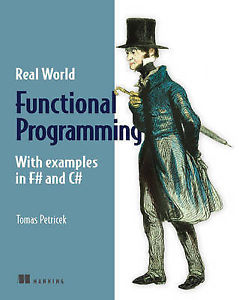-
Functional Programming in C#, Second Edition Out now
- Author: Enrico Buonanno
- Date of Publication: February 2022
Functional Programming in C# teaches you to apply functional thinking to real-world problems using the C# language. The book, with its many practical examples, is written for proficient C# programmers with no prior FP experience. It will give you an awesome new perspective.
Updated for .NET 6 and C# 10.
-
Functional Programming in C#: Classic Programming Techniques for Modern Projects
- Author: Oliver Sturm
- Date of Publication: May 2011
Take advantage of the growing trend in functional programming. C# is the number-one language used by .NET developers and one of the most popular programming languages in the world. It has many built-in functional programming features, but most are complex and little understood.
-
Real World Functional Programming: With Examples in F# and C#
- Author: Tomas Petricek
- Date of Publication: December 2009
Real-World Functional Programming is a unique tutorial that explores the functional programming model through the F# and C# languages. The clearly presented ideas and examples teach readers how functional programming differs from other approaches. It explains how ideas look in F#-a functional language-as well as how they can be successfully used to solve programming problems in C#. Readers build on what they know about .NET and learn where a functional approach makes the most sense and how to apply it effectively in those cases.


